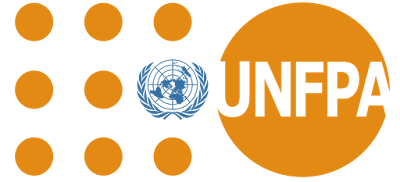Consultant for Documentation of the community prevention programme in Sambas, Indramayu and East Lombok
Background and ContextUNFPA has been facilitating a community prevention programme for the elimination of human trafficking and understanding safe migration under the context of human security. The programme was started in 2012 up to 2013; therefore UNFPA would like to document the process and the progress of the prevention strategy in the community in the 3 intervention areas (Sambas, Indramayu and East Lombok).
The goal of the community prevention programme is to reduce the number of victims of trafficking and to promote human security concept with focus on safe migration. The prevention programme is part of EMPOWER project which take place in the 3 locus.
Purpose of the documentation
The purpose of the documentation is to take note on what works and what didn’t work in developing a prevention strategy with the vulnerable community; the result will be disseminated as a knowledge sharing for other institution in the three locus, especially the District Women’s Empowerment Office in leading the programme to address human trafficking in Sambas, Indramayu and East Lombok. The findings will also be valuable for the central level Ministry of Women’s Empowerment and Child Protection (MOWECP) to scale up activities and improve existing policies and programmes. Based on the results and other references, MOWECP and local government will be able to design guidelines or programme for districts and provinces on prevention and community engagement in addressing human trafficking and migration. The documentation result will also provide insight to UNFPA to improve prevention strategies in the future.
Documentation objectives and scope
- Scope: The documentation will cover all aspects of community prevention programme implementation including campaign strategy, community engagement strategy, capacity building for peer educators, outreach strategy and community response strategy in the three districts.
- Objective: Document the implementation of community prevention programme in Sambas, Indramayu and East Lombok
- Assess the relevance, efficiency, and effectiveness of the community prevention programme in reducing human trafficking and increasing safe migration in the intervention areas (Goal)
- Assess the relevance, efficiency, effectiveness and sustainability of the community prevention programme in contributing to the strengthening of the community response in addressing human trafficking
- To what extent has the community prevention programme made a difference in the life of the peer educators and the key community leaders?
- Assess how the programme has affected more people in the community aside from the targeted beneficiaries
The Documentation process will begin in the 3rd week of November and conclude in the 3rd week of December 2013. List of proposed methodology:
- Desk Review: KAP result, MTR report, Joint Monitoring Report, Endline KAP,NGO proposals and reports.
- FGD with peer educators
- In depth interviews with the NGOs who lead the process and key community leaders.
- In depth interviews with survivors from the village
- Minimum two years experience (after master’s degree) or six years (after bachelor’s degree) working on communication, social science, health or law.
- At least five years relevant experience in journalism or writing documentation, preferably on gender based violence/violence against women and/or violence against children; all applicants must submit a sample of work relevant to the post.
- Preferably have experience in community prevention programmes or community development.
- Ability to liaise and develop effective working relationships with other UN agencies, donors, NGOs, and the Government.
- Willingness to travel during the assignment
- A strong capability to communicate clearly and concisely in both English and Bahasa Indonesia (spoken and written) (all interview and FGD will be in Bahasa).
- Preferably able to produce high quality reports in English
The documentation will be conducted in accordance with the principles outlined in the WHO ‘Ethical and safety recommendations for researching, documenting and monitoring sexual violence in emergencies.
When a survivor of violence is interviewed, the consultant should comply with the ethical and safety guideline, upholding the survivor’s informed consent, confidentiality/anonymity and safety. All records and reports obtain in the consultation process will not be disclosed to other parties without the express approval of both UNFPA and the resource person.
Please send your application and sample of publication to: harijanti@unfpa.org by18th November 2013.
LOWONGAN KERJA NGO SELENGKAPNYA DISINI

